Alarm Bells Ring in Canada Over Advisor Shortage and Talent Shortfall
by Sarah Milner
Photo: Shutterstock.com
The travel advisor shortage is a known issue that has plagued the industry for years. According to The Travel Institute’s “The Changing Face of Travel Agents” 2023 study, 35% of travel agencies lost staff during the pandemic. When COVID-19 shut down the industry, many advisors retired or found another career path. Travel numbers may be back to (and in some cases, surpassing) pre-pandemic numbers, but the number of travel advisors has yet to reach sustainable levels.
In the current climate, the talent shortage is threatening the travel advisor industry. The increasing gap between available experienced professionals and demand has resulted in agencies hiring underqualified, inexperienced advisors–and in some cases, these newcomers lack the skills necessary to succeed in the role.
What agencies are saying
Earlier this month, American Marketing Group released the results of a survey it conducted with TRAVELSAVERS, NEST, and the Affluent Traveler Collection affiliate agencies from the U.S. and Canada. Respondents took the survey from March 21 to April 14, 2024.
The survey found that 89% of Canadian agencies are looking to expand, with 25% saying they’ll hire as many “good” candidates as they can.
The problem is finding experienced candidates for these roles: 60% of those surveyed stated that applicants lack the skills and abilities necessary to succeed, and 30% said new advisors are unwilling to put in the work required to establish themselves.
Agencies also cited financial compensation and lack of awareness as contributing factors to the labor shortage. More than half (59%) said that the pay was not high enough to attract candidates, while 23% stated that people don’t realize the profession still exists.
“Our concern is not having enough staff to support the increased clientele, and while our affiliate agencies are continuously searching for new employees, they tell us that candidates tend to lack in skill set,” said Jane Clementino, TRAVELSAVERS’ senior vice president and general manager Canada. “As an industry, we must attract new talent to get ahead of the huge demand we face.”
The AMG survey also asked agencies how they train new candidates. More than two-thirds (67%) rely on job shadowing. Other strategies include supplier training programs (38%), industry webinars (36%), and specialized programming (20%). TRAVELSAVERS Canada’s training program KORE, just released last month, was cited by 18% of respondents.
The education landscape is changing
Wendy Paradis, the president of the Association of Canadian Travel Agencies & Travel Advisors, told TMR that the changing college landscape has contributed to the current labor shortage.
Previously, Canadian colleges offered dedicated programs for becoming a travel advisor. In today’s education landscape, those programs are few and far between. Most travel and tourism streams are generalized, with students entering to work in hospitality careers such as hotel management or ecotourism.
“We’ve been experiencing for the last 10 to 15 years, is that more of the college programs are becoming have become generalized,” said Paradis, noting the lack of dedicated college programs for travel advisors. “So finding qualified travel advisors is difficult because that kind of infrastructure has changed, and is no longer the robust solution that used to be.”
When speaking to college students in recent years, Paradis has found that many people pursuing a career in the tourism industry are unaware that travel planning is an option. “We have a lot of work to do as an industry to continuously promote the exciting career of being a travel advisor.”
Clementino believes technology and accessibility are essential to combating misconceptions and attracting talent to the travel advisor industry.
“With online travel booking sites readily available, one might assume that using a travel consultant isn’t necessary to book your perfect vacation. We know that the opposite is true for our affiliate agencies,” Clementino told TMR.
“Combating this would include bringing back the fun to the industry, reiterating the value of booking with travel advisors, and offering up-to-date real-world focused educational tools.”
Bridging the gap
Paradis argues that the labor shortage has been an “acute crisis” since before the pandemic.
Rhonda Stanley, vice president of talent development at The Travel Agent Next Door, has the opposite experience: The host agency has seen rapid expansion post-pandemic.
“We have some incredibly successful agents that are new in the industry. It does take them time to get up and running–and that’s why support is so critical,” said Stanley.
TTAND’s approach involves vetting prospective members to find those with the right mix, and then offering support to help them build their business. The host agency, currently celebrating its 10th anniversary, relies on a specialized training program developed by professional educators, as well as materials from The Travel Institute. Although some people do drop off, Stanley is overall happy with the success rate.
Stanley told TMR that newcomers have their own benefits too. “Somebody that’s new coming in–they’re excited. They’re so customer-focused, they want to do a good job. Sometimes they are the ones that will go above and beyond.”
Diana Valler, chief human resources officer at TravelBrands Inc. said her company found similar success by developing training programs for newcomers to the industry. Although she too encountered difficulty finding, hiring, and retaining talent post-pandemic, she said innovation helped turn things around.
“Through strategic reinvention, we were able to overcome this challenge and achieve incredible success in our recruitment efforts. Part of this meant investing in new-to-industry individuals and building the next generation of travel professionals,” Valler told TMR.
























